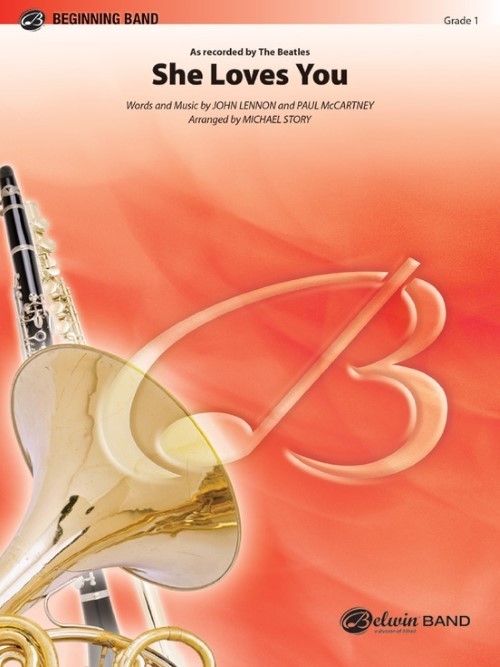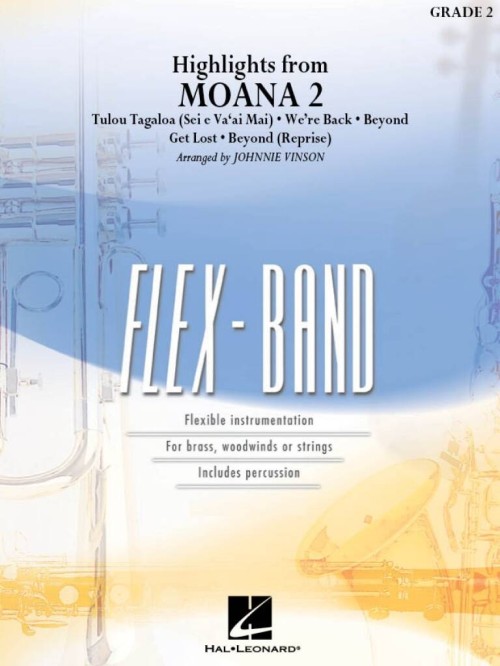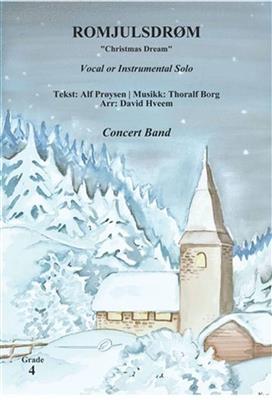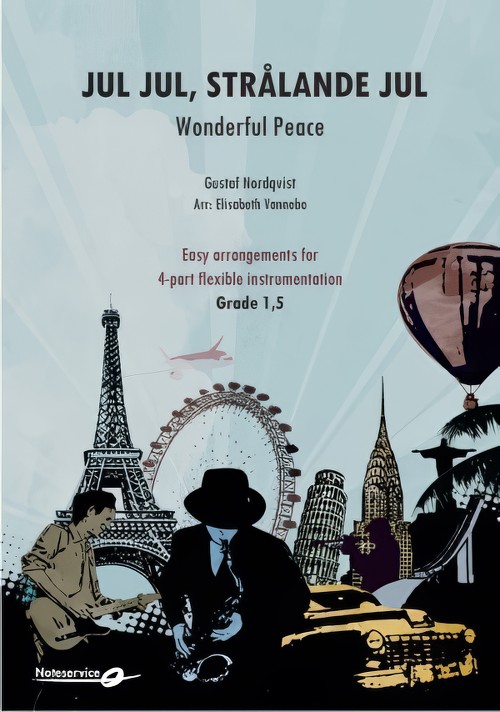Results
-
 £113.30
£113.30Moderate Dances - Angelo Sormani
This piece is a tribute to dance music, especially passionate, intense and meditative dance music. "Moderate Dances" is divided into three movements: a "Tango", a "Slow Waltz" and a "Bossa Nova". Each movement and each dance has its own particular characteristics but, when combined, these different rhythmic beats and times give the piece a feeling of completeness and uniformity. The Tango started to flourish in the suburbs of Buenos Aires in around 1880. There is still some doubt as to its origins, which may be Cuban (Habanera) but are probably African. It was most popular in Argentina and Brazil: here the male protagonist was originally the "gaucho" with his inseparable guitar, later to be replaced by the proud, elegant "compadre". By around 1910 the Tango had spread to Italy and France. New clubs opened, where the upper classes could watch and dance the Tango. Here the dance also underwent some rapid transformations. The exaggerated and extravagant gestures and body movements disappeared. Slow, gliding steps replaced the old rotational movements. The women's red ankle-boots and the partners "staring into each other's eyes" accentuated the erotic nature and sensuality of this dance. So much so that, in 1913, the German government banned soldiers from dancing the Tango. Those who broke the law were immediately discharged from the army. From a strictly musical perspective, the basic instruments were a flute, a harp (the diatonic harp typically played by the Indians of Paraguay) and a violin, or flute, guitar and violin or even clarinet, guitar and violin. These instruments were easy to transport, ideal for playing at parties, in the streets and in courtyards. The musicians played by ear, frequently improvising: there were no scores, no records, which is the main reason why it is impossible to trace the Tango back to its exact origins. However, the Tango's evolution (and growing popularity) was once again fostered by its fundamental ability to absorb "other" cultures, languages and sounds. And it was the arrival of the "bandoneon" (an accordion-like instrument that was invented in Germany and brought to Rio de la Plata by some immigrant), which replaced the flute, that marked the beginning of the Tango's huge success outside Argentina. A number of talented composers, above all the great Astor Piazzola (1921-1992), transformed the bandoneon from a simple accompanying instrument to a solo instrument that was to become the distinguishing feature of the 20th century Tango. The Slow Waltz originated from the Waltz, the typical dance of the Bavarian and Tyrolese peasants in the 1700s. It was composers like Johann Strauss, father and son, who carried the Waltz to its zenith in the 1800s, creating the sensual and melancholy yet joyful and charming dance we are all familiar with. When the Waltz first became popular in Germany, the members of respectable society were shocked at the closeness of the dancing partners, who had always previously danced apart. The main difference between the Waltz and Slow Waltz is that the latter has a slower, more expressive rhythm: the men wear tails and the women wear ball gowns decorated with beads and feathers and couples dance in graceful rotational movements. "Bossa Nova" is the title of the last movement in the piece. Jobim, the great Brazilian musician, described this musical genre as a combination of modern Jazz and Samba. Bossa Nova means "new wave". This was the name of the artistic and musical movement that evolved in Brazil in the late Fifties and was extremely popular throughout the Sixties. The songs are usually about love or social matters, drawing inspiration from the slums of Rio De Janeiro and the lives of their inhabitants. Bossa Nova, with its original compositions and the artistic talent of its musicians, also became hugely popular in the United States and Europe, and top Jazz musicians (Ella Fitzgerald, Stan Getz, Bob Cooper, Charlie Bird, Sonny Rollins, Dexter Gordon, Dizzy Gillespie) started to include Bossa in their repertoires.
Estimated dispatch 7-14 working days
-
 £55.00
£55.00She Loves You (Concert Band - Score and Parts) - Lennon & McCartney - Story, Michael
As recorded by the Beatles. Ranked by Rolling Stone on the top 100 songs of all time and one of the five Beatles songs all in the top five simultaneously in April of 1964, this classic rock-and-roll hit remains a real charmer. Prepared for first year students, this one will be recognized by young and old alike. Great classic rock for your first pop program.Duration: 2:15
Estimated dispatch 7-14 working days
-
 £84.99
£84.99Als die alte Mutter (Soprano Solo with Concert Band - Score and Parts) - Dvorak, Antonin - Takahashi, Tohru
Als die alte Mutter (Songs My Mother Taught Me) is the fourth of Antonn Dvorak's Gypsy Songs (Opus 55), a cycle he composed in the year 1880. This moving song was written to a German poem by Adolf Heyduk, and in the course of time, it has been performed and recorded by great singers like Nellie Melba, Joan Sutherland and Rene Fleming. The appealing melody is known to a large public. In this edition, two versions have been combined: an instrumental adaptation of the song, and an adaptation for soprano with a concert band accompaniment - both made by Tohru Takahashi.Duration: 2:00
Estimated dispatch 7-14 working days
-
 £64.99
£64.99Moana 2, Highlights from (Flexible Ensemble - Score and Parts) - Vinson, Johnnie
A great medley of hit songs from the smash Disney sequel, perfectly scored for flex-band, featuring the songs Tulou Tagalao (Sei e Va'ai Mai), We're Back, Beyond, and Get Lost.Duration: 4.15
Estimated dispatch 7-14 working days
-
 £115.60
£115.60Romjulsdrm - Thoralf Borg
The poem Romjulsdrm ("Christmas Dream") was first published in Arbeiderbladet on January 3rd 1959, and became known when Thoralf Borg set a melody to it in 1968. Up until this, Alf Prysen had used a melody quite similar to the song Lijan uti dalen, when he sang the song in the TV program Ei vise vil jeg synge in 1964. At the same time that Borg's melody was written, the last four lines of text were also added to the poem, and the song took on the form we know today.The form and structure of this arrangement originates from a version for big band and vocals commissioned by stre Toten Storband, written in 2018 for one of their traditional midnight concerts on the day before Christmas. In an attempt to give the arrangement a nice calm and the text a lot of room, as is often the case in songs like this, it ended up in a relatively narrative style where the variation in tempo and the shifts between swing and straight eighth notes are particularly central.The song is about family, friendship and the quiet days of the Christmas holidays, which hopefully is something most people can recognise. The arrangement for the aforementioned midnight concert was ordered because my sister was to be the soloist for the concert, and since my father also played lead trombone - as he has done in this big band for as long as I can remember - it was natural to add a small trombone solo as well. It's always special to write and arrange music for people I know and appreciate, but it's extra special when it's also for two of my great role models.- David Stre Hveem -
Estimated dispatch 7-14 working days
-
 £84.99
£84.99Bailando
When summer is in the air, great songs are on the radio! 'Bailando' by Enrique Iglesias is one of the biggest summer hits of the past few years, and both the English and Spanish versions of the song were massive hits in most parts of the world. Keep the summer mood going by playing this smooth Grade 3 version of 'Bailando'.
Estimated dispatch 7-14 working days
-
£168.50
Armed Forces - Larry Clark
With theme songs from all five branches of the armed forces, stirring march themes from John Philip Sousa, and both the Pledge of Allegiance and National Anthem of the United States of America, Armed Forces The Pride of America is sure to become a staple for patriotic programs. Arrangers Larry Clark and Greg Gilpin have taken great care in creating a uniquely flexible setting both in instrumentation and performance. Designed to be performed by band, orchestra, or chorus, separately or in any conceivable combination, ensembles need not be limited by size or instrumentation. Careful attention has also been paid to playability for ease of performance and rehearsal. An optionalending allows even further flexibility when performance time is a consideration and an optional narrator part can be used to invite rousing audience participation. This popular medley is sure to bring a stunning performance in almost any setting.
Estimated dispatch 7-14 working days
-
 £164.99
£164.99Early Hungarian Dances - Ferenc Farkas
The composer wrote of his work as follows: In the music of Hungary, folk songs are manifestly of great importance, on the other hand our ancient airs and dances play a modest role. For this work I have been influenced by dances of the 17th century, written by unknown amateurs in a relatively simple style. Most of these dances were recorded between the 14th and 18th centuries under the usual form of tablature notation. My interest in this music was first captured in the 1940s. I was so fascinated that I decided to give these melodies new life. I fitted the little eight-bar dances together into ternary and rondo forms, and leaning on early Baroque harmony and counterpoint, I attempted a reminiscence of that atmosphere of the provincial Hungarian Baroque.
Estimated dispatch 7-14 working days
-
 £149.40
£149.40Norwegian Dance No. 2 - Alfred Evensen
Alfred Evensen (1883 - 1942) was born in Troms, but moved to Harstad 16 years old to start as a student at The Military School of Music. He was director and chief of the military band in 1918, and worked there for 12 years. In 1930 he was appointedto conductor of the military band in Bergen, and worked there until he was appointed to take over from Johannes Hanssen (Valdres march) as manager and conductor of the military band in Oslo in 1934.With this band he participated in a majorinternational military music collection in Paris in 1935 With a great success. In addition to his work in military music, he was a highly respected conductor of choir and composed, in additionto his compositions for bands, many songs for choir.He died in Oslo, after he was arrested because of his resistance against the German occupation. At his own request he was buried in Harstad, and there is also a statue of him.Norwegian Dance No. 1 and No. 2 dates from 1911 and 1912respectively. They are composed in the style of Grieg's Norwegian Dances, Op. 35, but, unlike Grieg, Evensen has used his own themes for the compositions.
Estimated dispatch 7-14 working days
-
 £59.80
£59.80Jul Jul, Stralande Jul (Wonderful Peace) (Flexible Ensemble - Score and Parts) - Nordqvist, Gustaf - Vannebo, Elisabeth
Wonderful Peace was written by Gustav Nordqvist and first published in 1921 by the publishing company Abraham Lundquist AB. Edvard Evers wrote the lyrics which describes Christmas as white and full of snow. It also depicts the rest of the Christmas blessing with wishes of light and peace for the holiday season. The song was one of the most performed Swedish Christmas songs last Century. Today we can enjoy numerous great recordings of the song.Duration: 2.15
Estimated dispatch 7-14 working days
